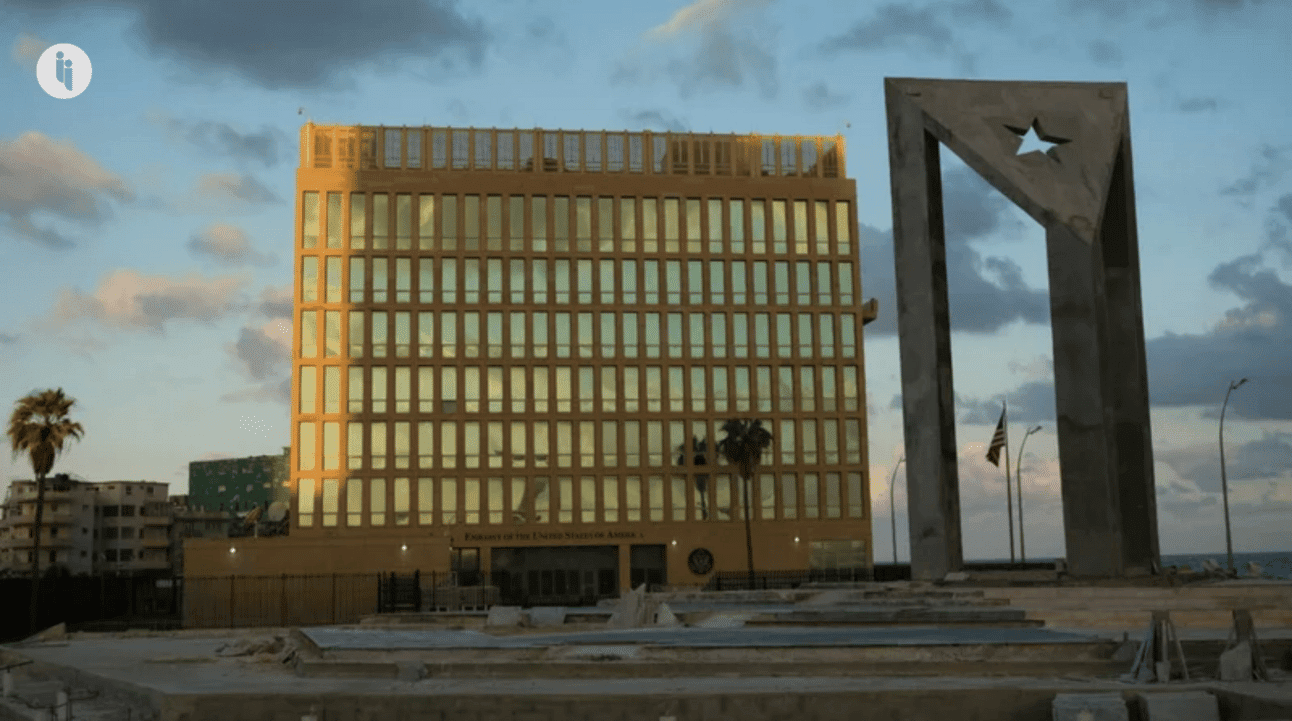A joint investigation by 60 Minutes, The Insider, and Der Spiegel (🇩🇪) has brought Havana Syndrome back into the headlines. Here’s what you need to know.
Havana Syndrome – or ‘Anomalous Health Incidents’ (AHIs) in official Washington circles – refers to symptoms that’ve hit US diplomats and spies over the past decade, including strange sounds, sensations, vertigo, nausea, and pain.
Public reports first emerged after US diplomats and spies (plus Canadian officials) experienced these symptoms while stationed in Havana in 2016.
Stay on top of your world from inside your inbox.
Subscribe for free today and receive way much more insights.
Trusted by 134,000+ subscribers
No spam. No noise. Unsubscribe any time.
The number of recognised cases is now in the hundreds (out of a thousand or so that have been investigated), spanning cities like Berlin, Bogota, Guangzhou, DC, Delhi, Hanoi, London, Vienna, Vilnius, Taipei, Tbilisi and elsewhere.
So, given the Bond-esque facts and these Bourne-esque locations, there’ve long been concerns US officials have been targeted with a non-lethal weapon.
And duelling studies have examined and coined various theories, but two of the most common explanations these days include:
- A kind of pulsed radio frequency energy, cited (along with ultrasound to a lesser degree) as “plausible” in a 2022 US intel report, and
- Natural causes like psychosocial factors, though the same report above says Havana Syndrome cases don’t meet most psychogenic criteria
Then in 2023, US intelligence assessed (and reiterated last month): it’s “very unlikely” a foreign adversary is responsible; there’s “no credible evidence” any rival has such a weapon; these theories emerged after early flawed studies on the patients; and their symptoms were probably the result of natural factors like “preexisting conditions, conventional illnesses, and environmental factors.”
So, where does this weekend’s joint media investigation get us?
- It cites new cases, including one officer mysteriously knocked out cold in Frankfurt in 2014, and another hit at last year’s NATO summit in Vilnius
- It uses various methods to geolocate members of Russia’s secretive ‘Unit 29155’ (the destabilisation / hit-squad within Russian military intelligence) to times and places where Havana Syndrome cases occurred
- It cites a leaked Kremlin document to show a Unit 29155 officer had been working on “nonlethal acoustic weapons”
- It shows relevant members of Unit 29155 have since been rewarded with promotion to sought-after Kremlin positions
- It features a former US intelligence investigator claiming a common link for many of the victims was their work against Russia, and
- It quotes a Russian spy chief boasting that “hundreds of employees of foreign intelligence services… have been identified and neutralised.”
The investigation concludes, saying “Havana Syndrome shows all the markings of a Russian hybrid warfare operation“. But okay… why would Russia do this?
Moscow would have specific reasons, such as to tank pivotal US efforts in Havana (2016) and Kyiv (2014); or the historic 2021 visit to Vietnam by the US vice president; or the US president’s attendance at last year’s NATO summit in Vilnius. US officials were hit with Havana Syndrome around all these times.
Moscow would have general reasons too, like incapacitating rival spies and diplomats without crossing the lethal threshold; hitting a rival’s morale and recruitment; and fostering broader paranoia and dissent across Washington.
So where does that leave us?
Those with Havana Syndrome have found some vindication in this weekend’s reports, while expressing frustration at the slow or sceptical US responses they’ve encountered. Others, bemused by all the juicy details, remain dismissive.
And meanwhile, responsible or not, Russia has probably enjoyed the spectacle.
INTRIGUE’S TAKE
The way this has all played out in public looks like a Rorschach Test: depending on how you see the evidence, you’re either a war-monger seeking broader conflict with Russia / more support for Ukraine; a rube still believing Hollywood fantasies about Russia; or a tie-dye clad peacenik sticking your head in the sand rather than confronting what this is and where it all takes us.
There are folks we respect who’ve reached each of these conclusions. There are also folks we (ahem) don’t respect, who’ve reached each of these conclusions. That makes for a confusing context – and we can’t imagine what it’s like for those still wrestling with Havana Syndrome and its symptoms.
But we’ll say this – we know true tales of Western diplomats returning to their residences in Moscow to find a deuce on the dinner table, or simply being beaten up by Russian spooks. So we find nothing surprising about Russia’s security services crossing lines to harm rivals where they feel justified.
More surprising (though not out of the question) would be Russia developing this weapon without leaving “credible evidence”, especially given the degree to which US intelligence appears to have penetrated Russia’s inner sanctum.
We’re also old enough (barely?) to remember when US authorities initially dismissed Gulf War Syndrome, until evidence led Washington to confront it.
Also worth noting:
- Cuba released its own scientific study (🇨🇺) in 2021, concluding that “the narrative of the ‘mysterious syndrome’ is not scientifically acceptable in any of its components.“
- Russia has continued to issue denials, describing the allegations as “baseless” and “unfounded”.
- US President Joe Biden signed the Helping American Victims Affected by Neurological Attacks (HAVANA) Act in 2021, aimed at supporting those diagnosed with Havana Syndrome.








